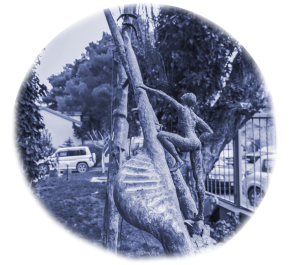History of Foundation and Development
The Center for Training and Consultancy was founded in 1999. Building democratic institutions in a young and independent state was full of obstacles. Mobilizing the society, managing good initiatives effectively or effective governance was quite problematic.
CTC founders believed that good management and administration practice would be the most important precondition for the development and restructuring. That is why they set this very goal for the centre: to provide support in organisational and institutional strengthening to development actors and individuals. This goal has maintained as the primary one since 1999 but strategic directions along with the target groups have been expanded. Nowadays, the Centre serves the civil society, public and private sector and suggests them educational and consultation services for their different levels of organizational development.
The Centre was strongly supported by European organizations such as Cordaid (The Netherlands), EED and Misereor (Germany) from the start. Through their assistance it became possible to transfer and accumulate the knowledge and expertise in Georgia. CTC has been developed as an institution for adult education supporting modern leadership and the development of human capital with working competence, on the one hand and on the other, it is a consultancy centre which renders assistance to different organizations in strengthening organizational systems and structures, as well as elaborating adequate strategies and management.
In the past years the Center for Training and Consultancy created and developed many products or projects of its own. Today its portfolio includes short-term trainings, short and long-term courses, individual or group consultancies on many issues regarding management and organizational development.
Beside proposing educational and consultation modules, the Center itself implements the projects focused on development in the sphere of the education and the other spheres, as well. CTC is involved in the sector-specific researches and expert group-work, it participates in the ongoing state reforms. CTC represents one of the founders or the member of numerous networks or coalitions. What’s more, CTC continues to support development and change actors and the Center remains loyal to the agenda of public development. Thus, CTC makes vigorous efforts to create various targeted programs to be oriented at the initiation of changes in specific social issues and the support of their improvement.
The priority interest spheres of the Center include:
- To ensure the sustainability of civil society organizations;

- To develop of local philanthropy;
- To stimulate civic culture and behavior;
- To support local democracy and self-government development;
- To support overcoming poverty by developing entrepreneurship and community.
We believe that success in this direction determines the sustainable modernization and restructuring of the
society, thus creating the platform of values of our activities.
The activities of the Center are based on the principles:
- Professionalism
- Strong orientation at practice
- Adaptation of modern management approaches in view of the specific local socio-cultural context.
CTC services and training courses are aimed at the following types of actors:
- Public, non-profit making organizations
- Public institutions
- International organizations working on development projects
- Small and medium businesses
- Social enterprises
- Active citizens
- Community leaders
Matthias Valentin, Founder of CTC , 2019
How We Began
CTC was founded in 1999. At that time Georgia was estimated according to Transparency International as one of the ten most corrupted countries worldwide. Since then, a remarkable process of democratisation has been initiated. Milestones have been the peaceful “rose revolution in 2003 and the change of power by free elections in 2012, an impressive prove of democratic maturity. Besides political stakeholders, civil society organisations have played a crucial role in this process.
CTC followed the mission, to support NGOs and other developmental stakeholders in strengthening their impact on processes of social and democratic development. Today, CTC has become an integral factor of the Georgian civil society.
Nowadays, tendencies of protectionism, nationalism and isolationism are threatening the concept of an open society are growing worldwide, even in countries of the European Union. These developments underline the fact, that an open society is never a lasting achievement. It needs permanent monitoring by active citizens holding government responsible and safeguarding accountability towards basic democratic rules and values. Thus CTC-mission appears today even more weighty than 20 years ago.
I wish CTC to continue and deepen its successful role in strengthening the process of civic participation in the democratic transformation process.